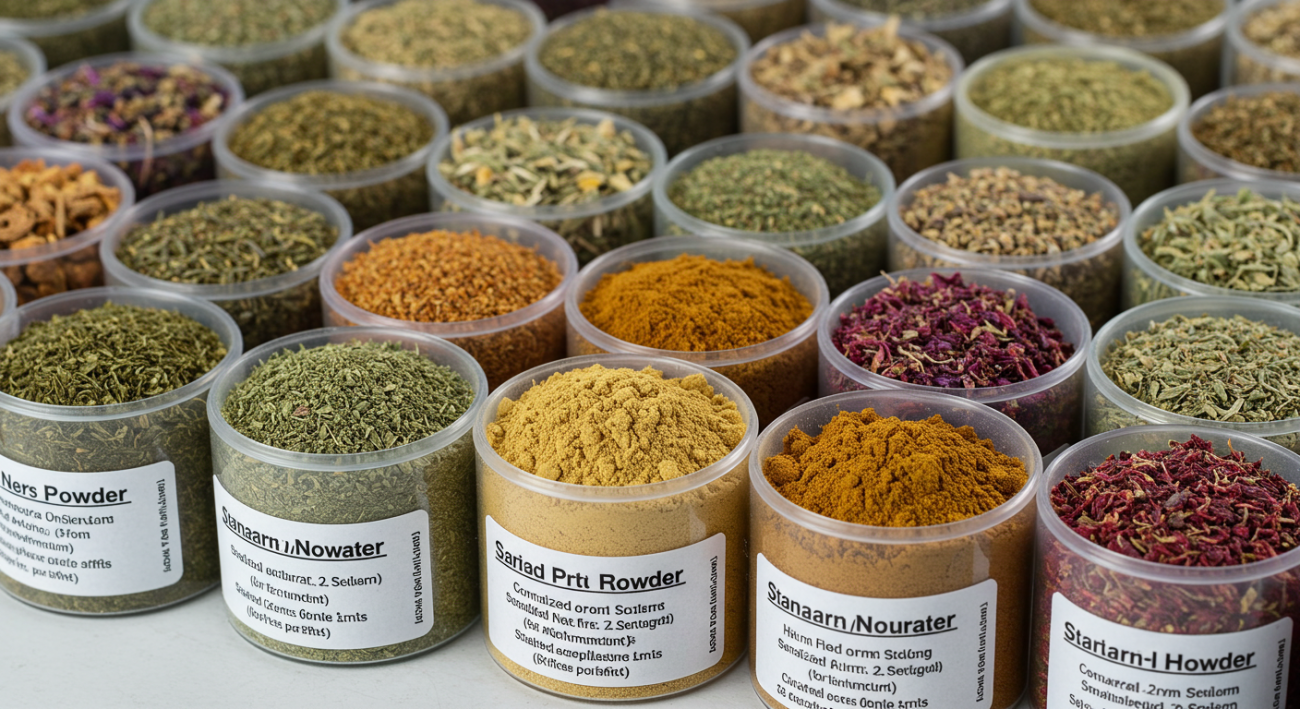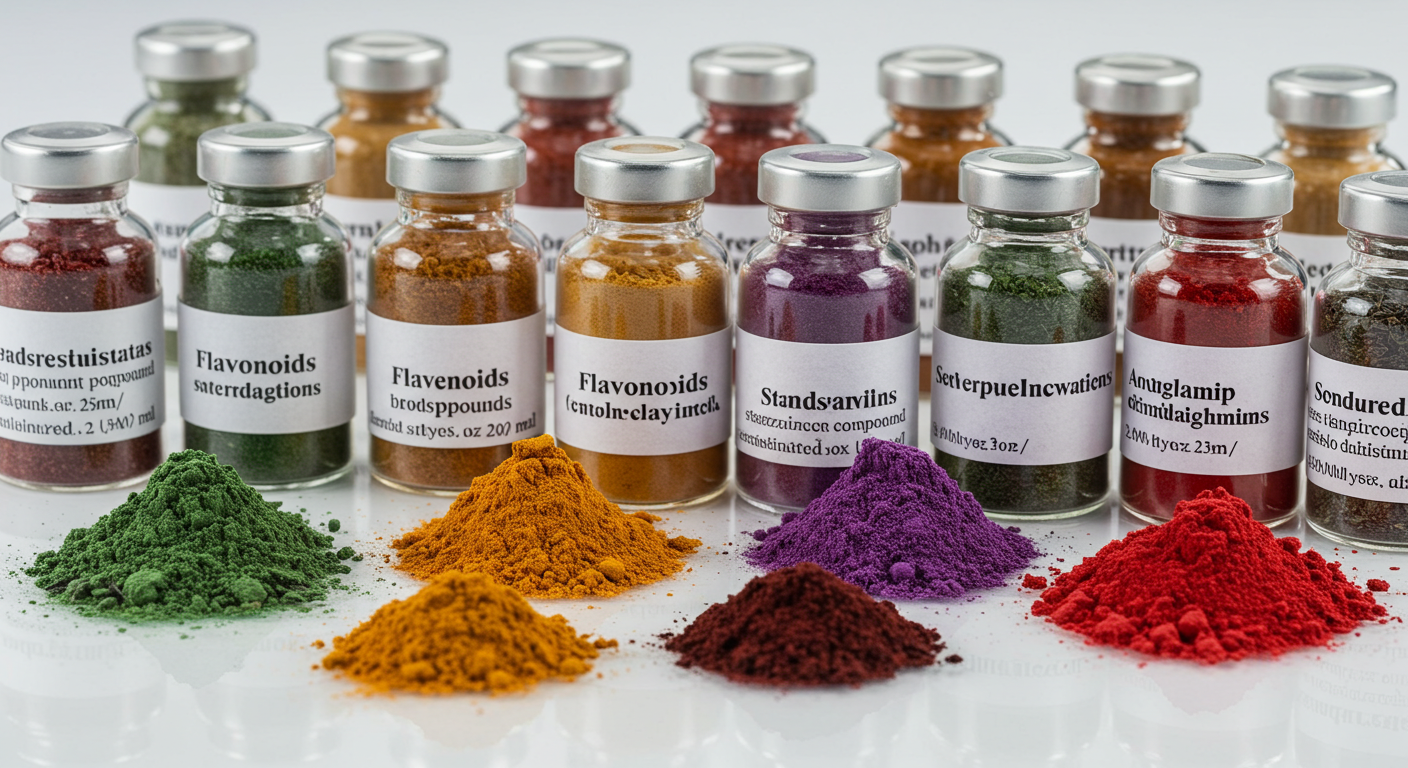The Introduction
Standardized herbal extracts have been remedies with trusted extracts for many years, but modern consumers frequently ask: Are standardized herb extracts safe to use? With the increasing fame of plant-based remedies, it makes sense to be worried about the quality, dosage, and possible side effects that herbal extracts could offer. The good news is, herbal extracts can guarantee reliable and measurable benefits when taken wisely. However, safety relies on certification, sourcing, dosage, regulation, and several critical factors. In this article, I will discuss how to evaluate herbal extracts and confidently use them.
What are Standardized Herb Extracts?
Standardized herbal extract is a subset of primary herbal extracts that are obtained from medicinal herbs using modern extraction and milling methods. The process protects not only the active constituents but also volatile oils and the integrity of the plant as a whole. Their proven potency and consistency make them perfectlyv suited to health supplements, nutraceuticals, and pharmaceutical needs. At B-Thriving, we ensure stringent laboratory tests to certify each batch for purity, stability, and global compliance. Their gentle phytochemical destruction protects the therapeutic potential of the extract. Containing abundant bioactive components, standardized herbal extracts are enriching and play an important role in modern wellness and traditional medicine by providing safe and effective support for different health formulations.
The Science Behind Standardization
Standardization begins with deep marketing research, but is rooted in pharmacognosy and quality control. Following scientific protocols, manufacturers make certain each extract has a certain concentration of active phytochemicals. This is important for:
• Pharmacokinetics
• Clinical outcomes
• Safety assessments
Standardization often encompasses:
• HPLC
• TLC
• Mass spectrometry
These tests ascertain the detection and quantification of the bioactive compounds, product contaminants, and product consistency.
Are Herbal Extracts Safe?
Health extract safety concerns, like, Are herbal extracts safe? It is a mantra that anyone interested in staying naturally healthy and fit would ask. Herbal extracts available on the market in various forms are not as safe as it is assumed. Extracts obtained from reliable vendors, in contrast, are reasonably safe and effective if taken with caution.
Key Safety Factors:
• Production processes with GMP certification.
• Herbal products with ISO certification.
• Supplements are tested by third-party laboratories.
• Correct storage and packaging.
Opt for standardized herbal extracts from reputable companies to ensure consistent potency, purity, and safety. Certified extracts from B-Thriving are manufactured with strict quality controls. We contract with regulated farms, guarantee lab-tested purity in every batch, and comply with GMP and ISO guidelines.
Responsible usage also impacts safety. Read product labels, begin with the recommended dosage, and consult your healthcare provider—especially if you are pregnant, nursing, or on other medications. In concluding remarks, are herbal extracts safe? Yes, as long as they are tested, properly used, and within the recommended standards, herbal extracts provide a powerful yet gentle solution for natural health support.

Certified Extracts to Experience Comprehensive Herbal
Quality control and certification are crucial due to the lack of regulation, because herbal products face the risk of contamination with heavy metals, pesticides, or even adulteration with synthetic drugs.
Pay Attention to These Certifications:
• GMP (Good Manufacturing Practices)
• FDA-registered facility
• ISO 9001 certification
• Organic certification
• Third-party lab reports
As noted in the Journal of Clinical Pharmacy, standardized herbal products from appropriate manufacturers are essential to mitigating health risks.
Safe Dosage Guidelines
Even with herbal supplements, overdosing is possible and dangerous. With herbal supplementation, both the supplement and the individual’s personal health status must be assessed in tandem.
Herbal Extract Safety Tips
If you are new to taking herbal supplements or already incorporate them into your daily regimen, safety should always be prioritized. This is especially true for standardized herbal extracts, which are concentrated forms of plant compounds that, while beneficial, must be used with moderation to prevent undesirable consequences.
- Look for the certification and compliance with GMP (Good Manufacturing Practice), ISO standards, and third-party lab testing. Having these certifications guarantees that the herbal extract is uncontaminated, potent, and pure. Avoid herbal extracts while pregnant or nursing unless directed by a trained doctor or herbalist, as some herbs may influence hormonal balance or affect fetal growth.
- Always begin with a low dose to check for allergic reactions or sensitivities. In the case of natural substances, unproven safety is no guarantee of no risk, especially if the recommended doses are exceeded.
- If you have any medical conditions or take any prescription medication, discuss it first with your treating physician. Some herbal extracts may interact with prescribed medications, changing their effects or introducing new complications.
The advice describes precautions that, if followed, allow uncontrolled use of herbal supplements in pursuit of personal wellness goals and self-improvement.
Who Should Avoid Herbal Extracts?
As much as standardized herbal extracts may provide potent health benefits, they do not suit every individual’s needs. Depending on one’s health status or stage in life, some people need to be more careful, or altogether steer clear of herbal extracts.
Who should exercise caution:
• Women who are pregnant or breastfeeding
• People under the age of 12
• Persons with liver or kidney disease
• Patients receiving chemotherapy or radiation therapy
• Individuals taking chronic illness prescription medication
In such situations, the use of herbal supplements may be problematic or result in unexpected treatment problems. Even natural products can interact with medications or disturb sensitive systems.
Herbal supplements can pose unexpected risks to people in certain sensitive groups. It is crucial to consult a licensed herbalist, naturopath, or primary care physician to tailor a plan to your personal health needs. Herbs should only be used in moderation.
Conclusion
Are standardized herb extracts safe to use? Yes. They are responsibly sourced, properly dosed, and certified for quality. Compared to unregulated raw herbs, they provide more consistent benefits. Remember to start with smaller doses, add them gradually, check for third-party testing, and consult a healthcare professional if you are on other medications. Intelligent supplementation begins with clever decisions, and standardized herbal extracts make that very achievable.

